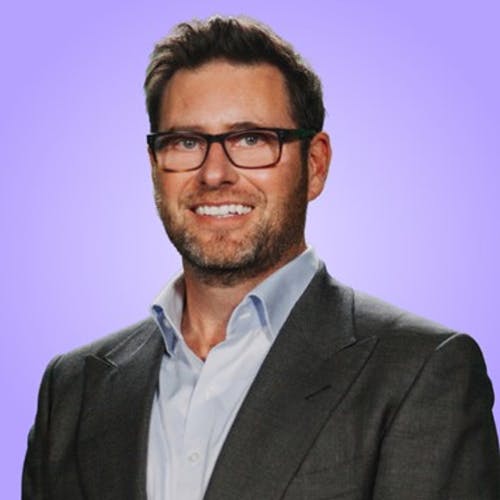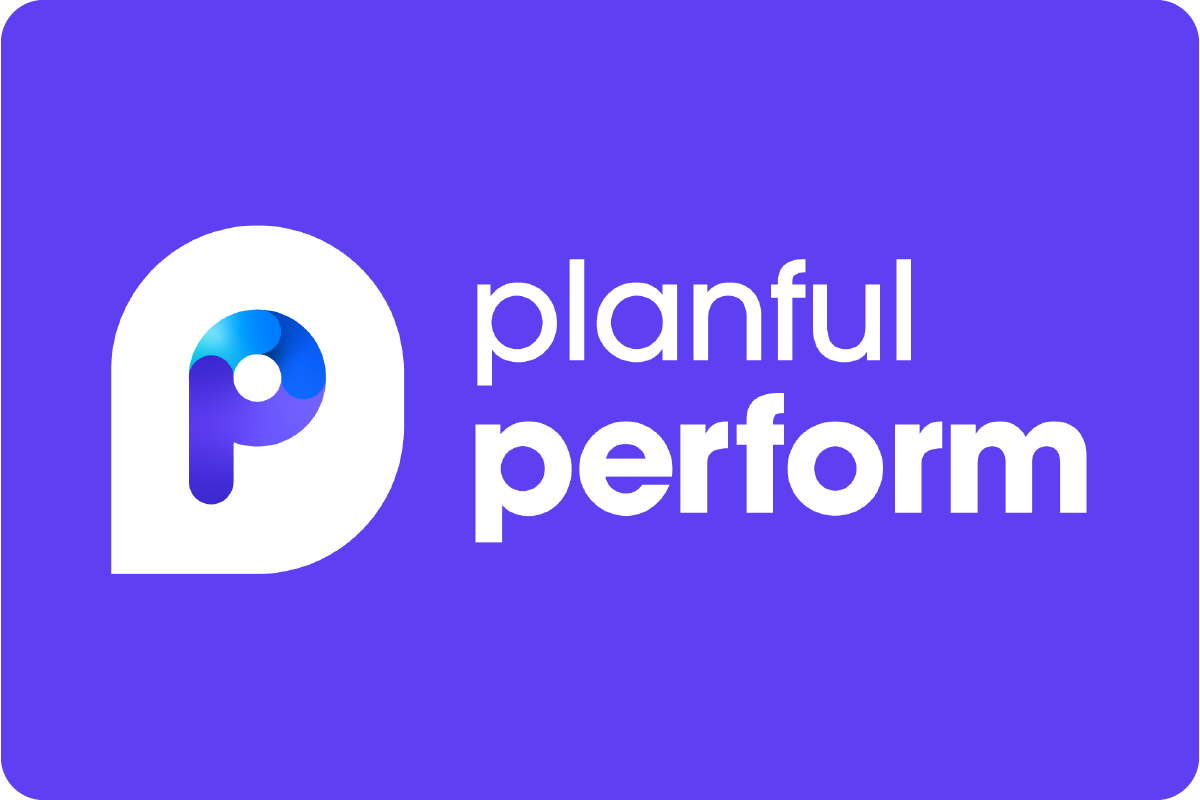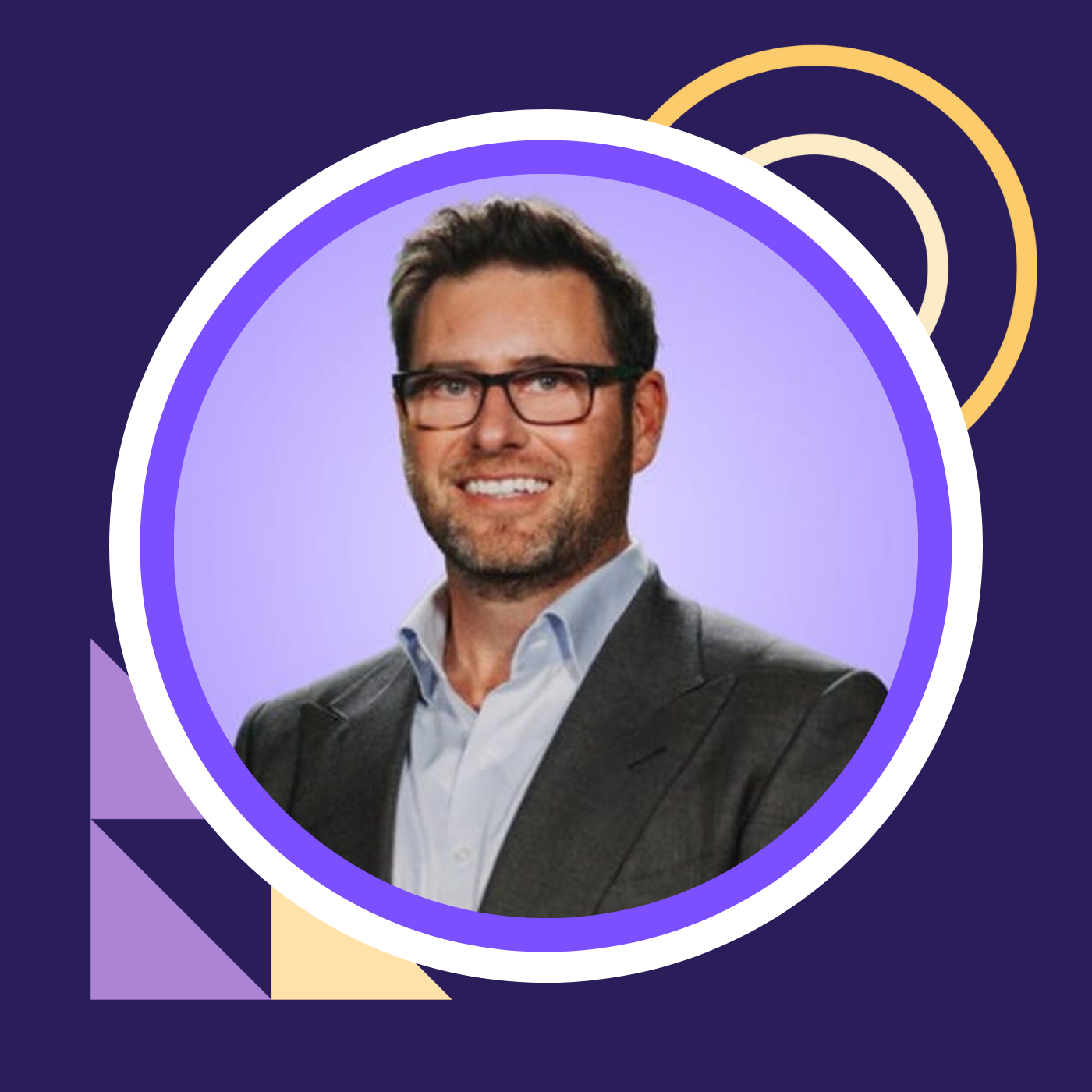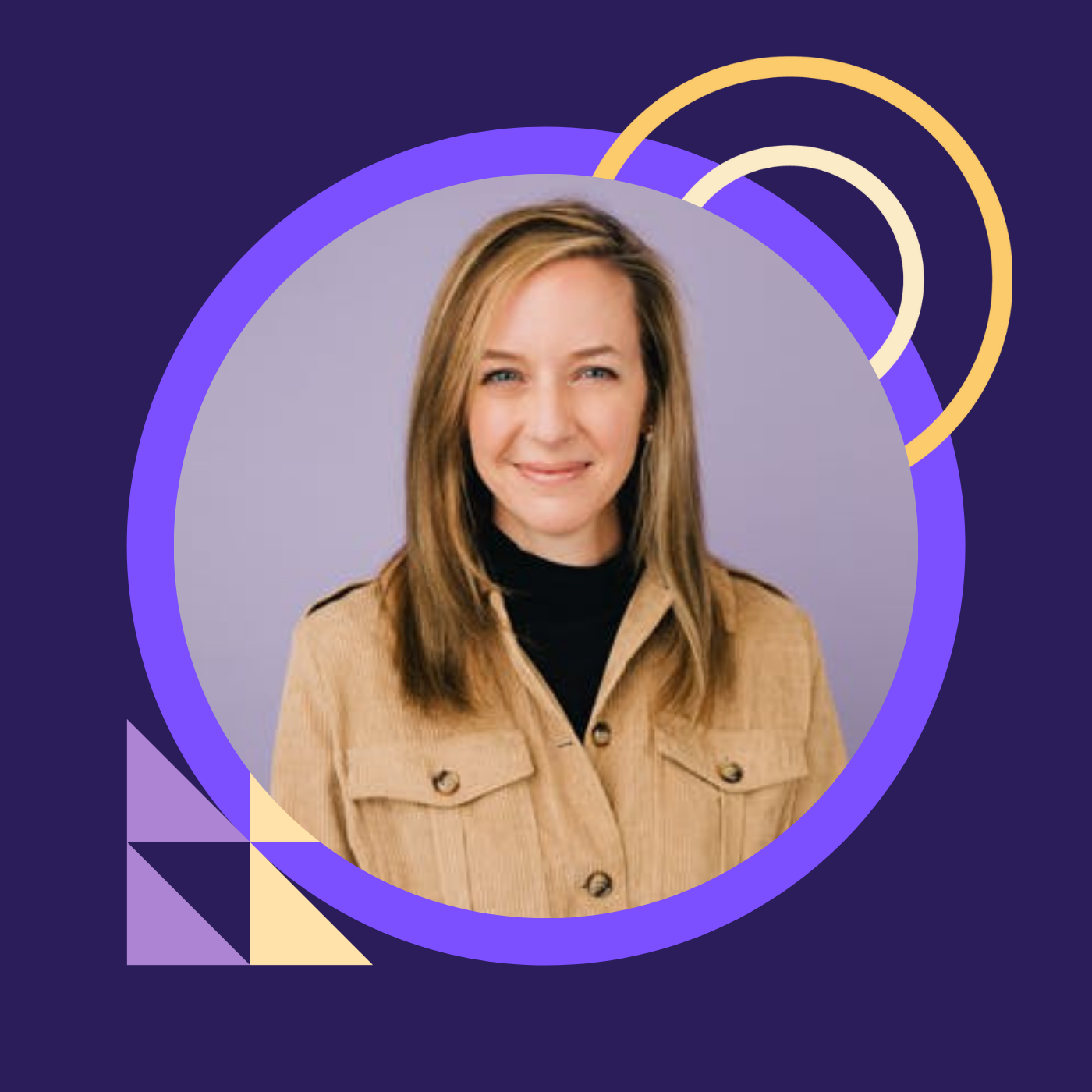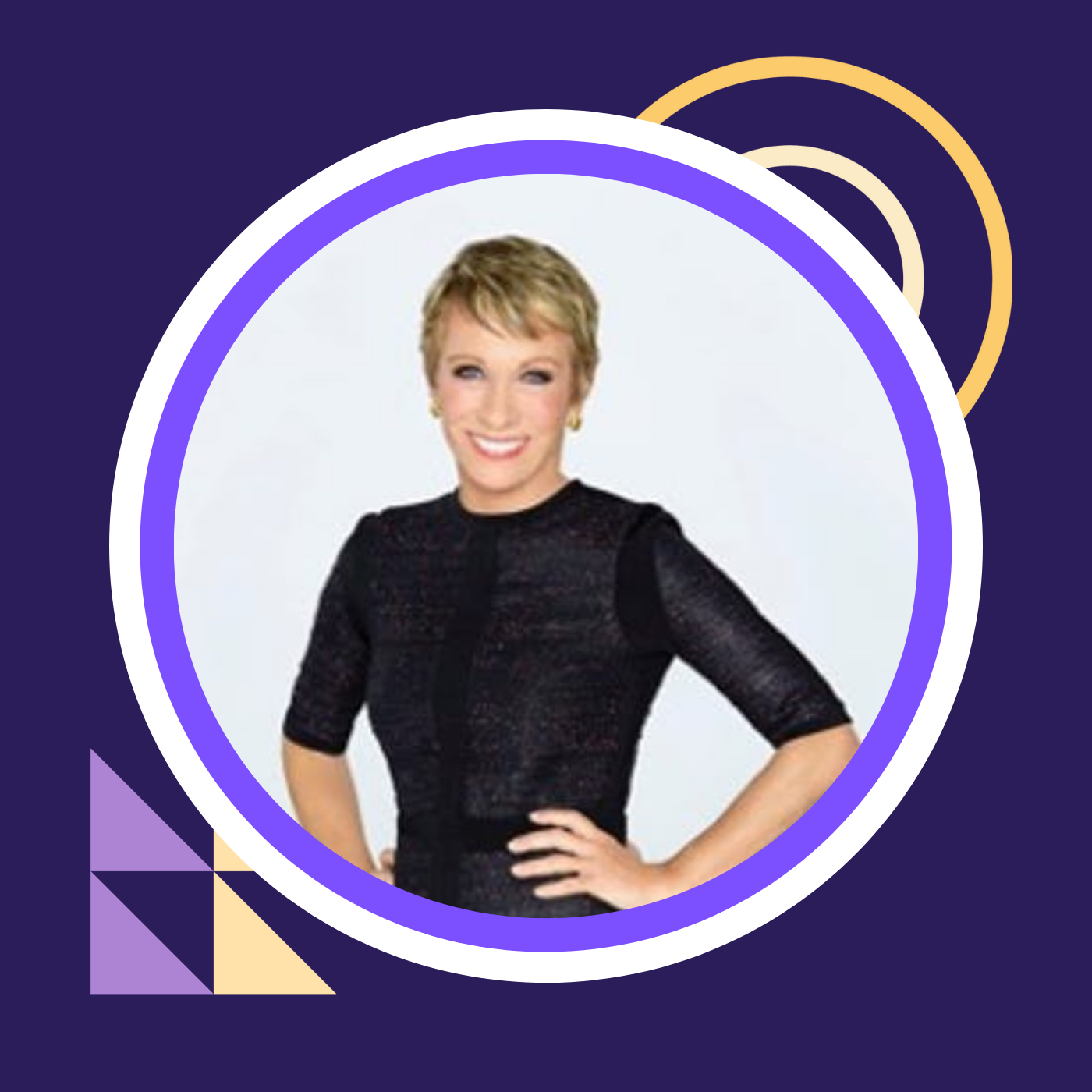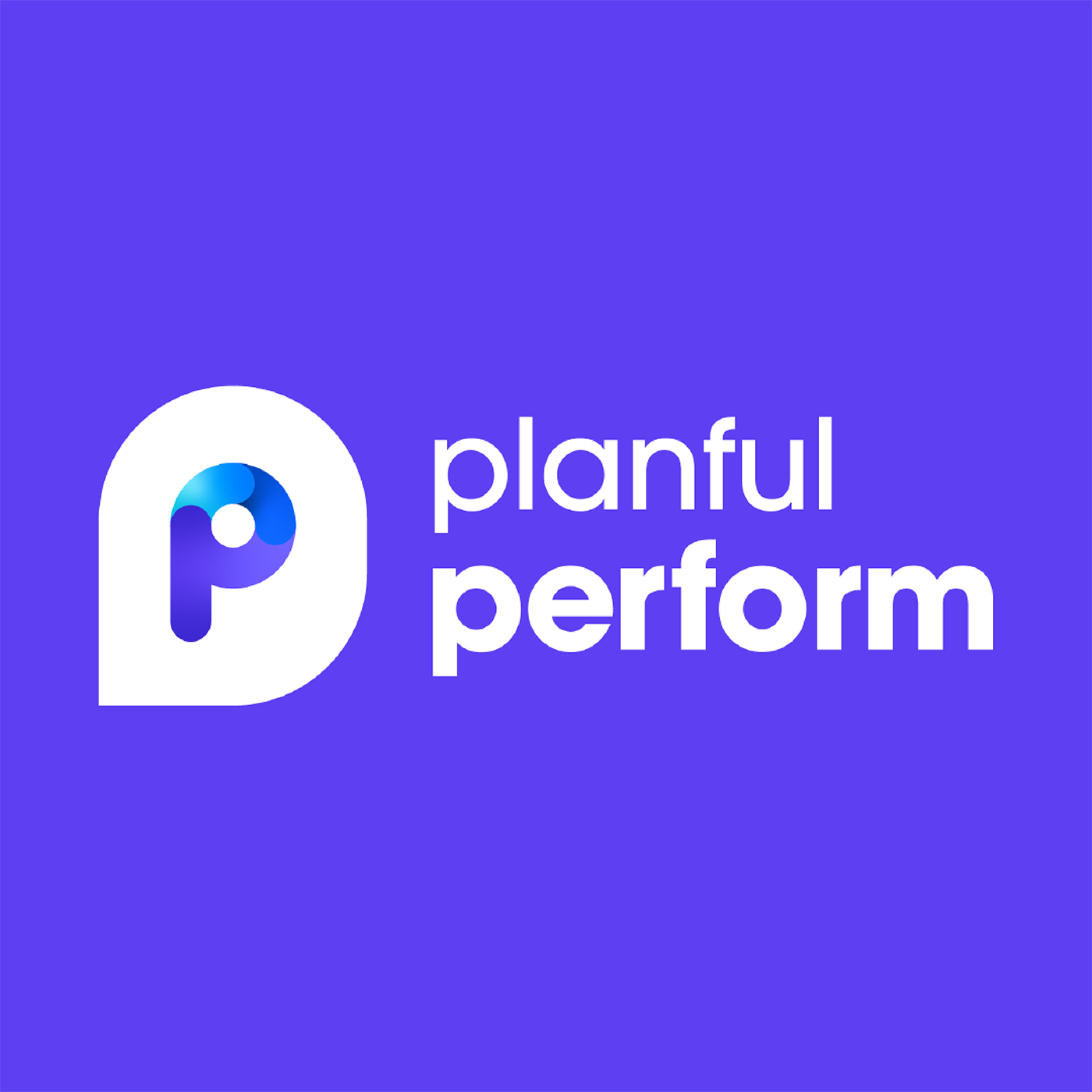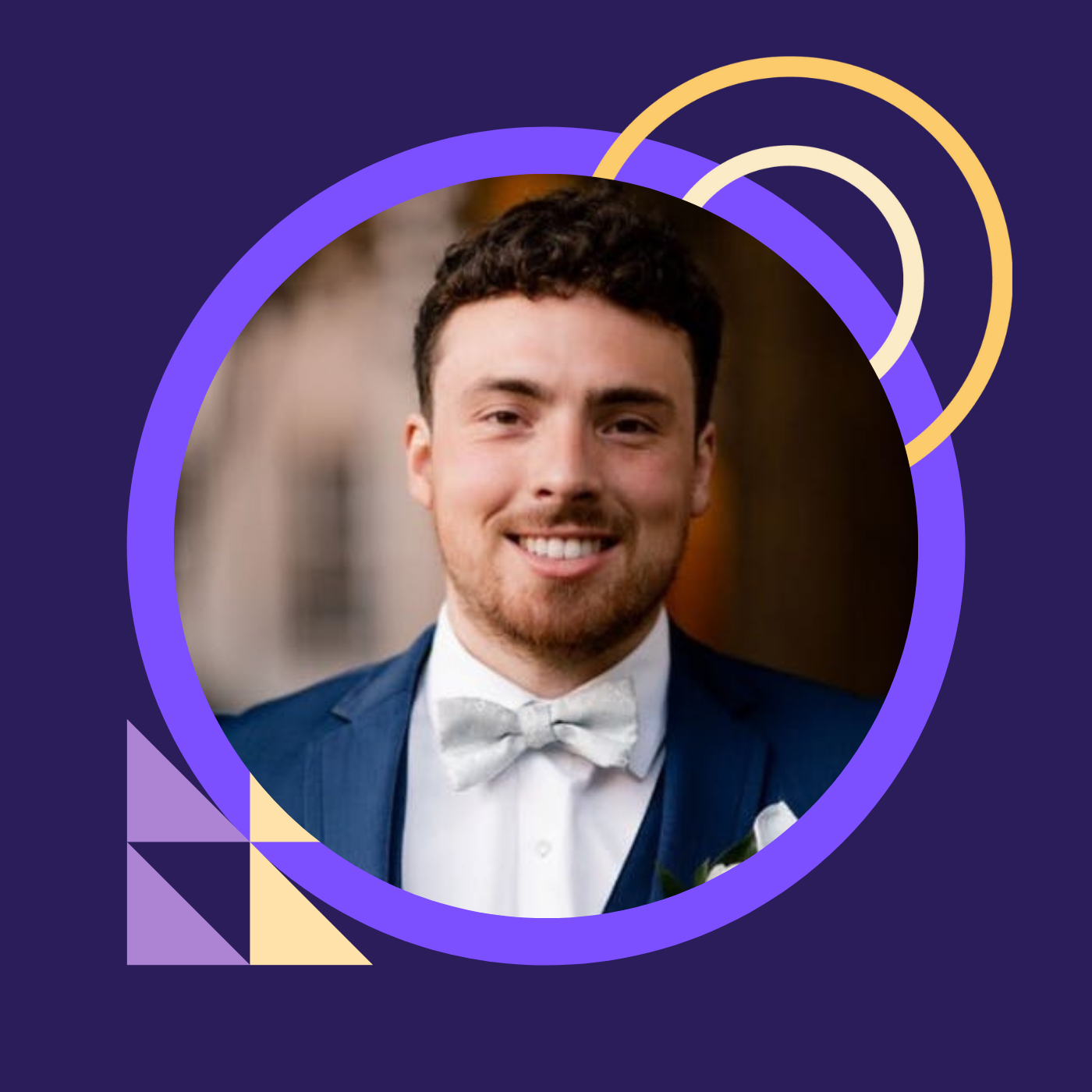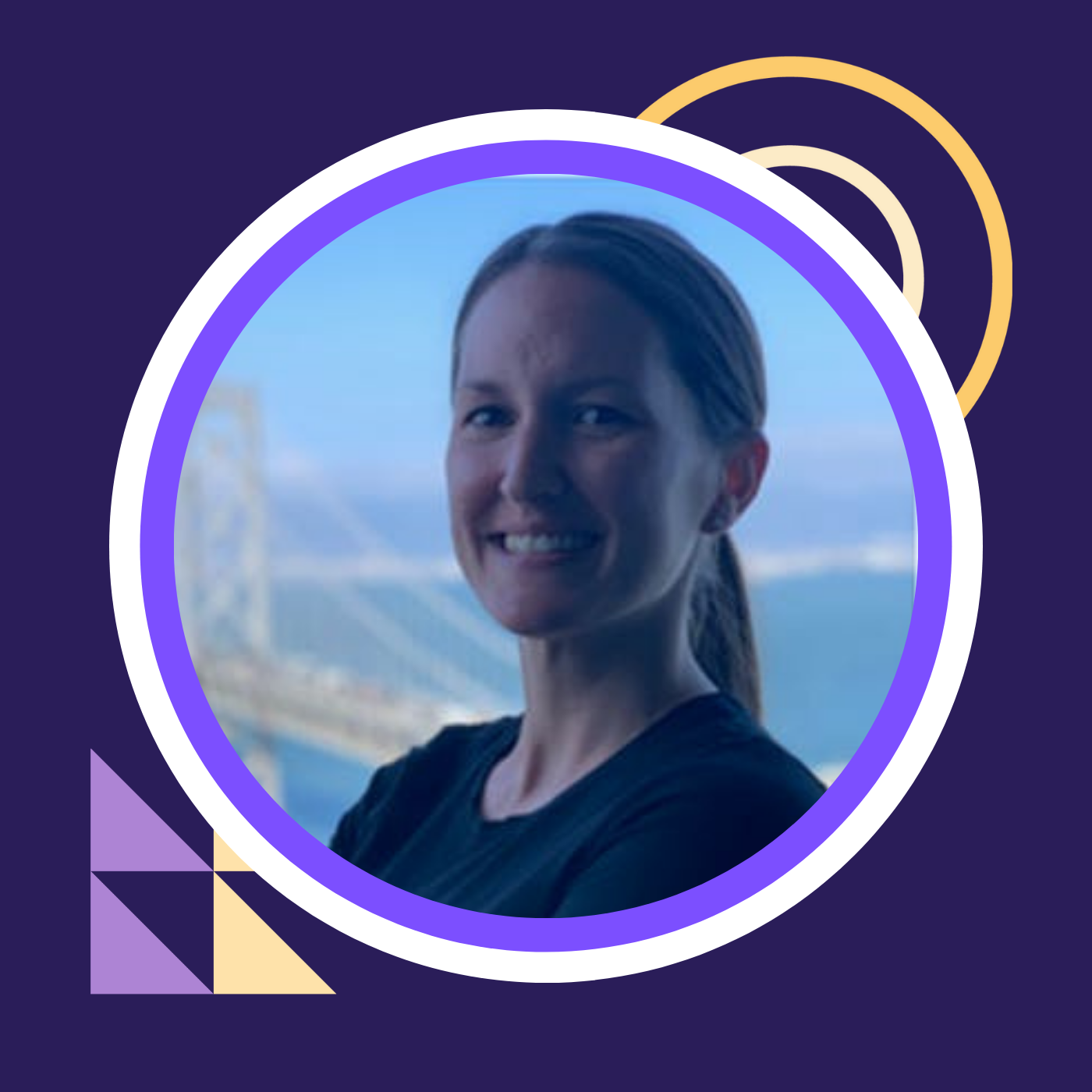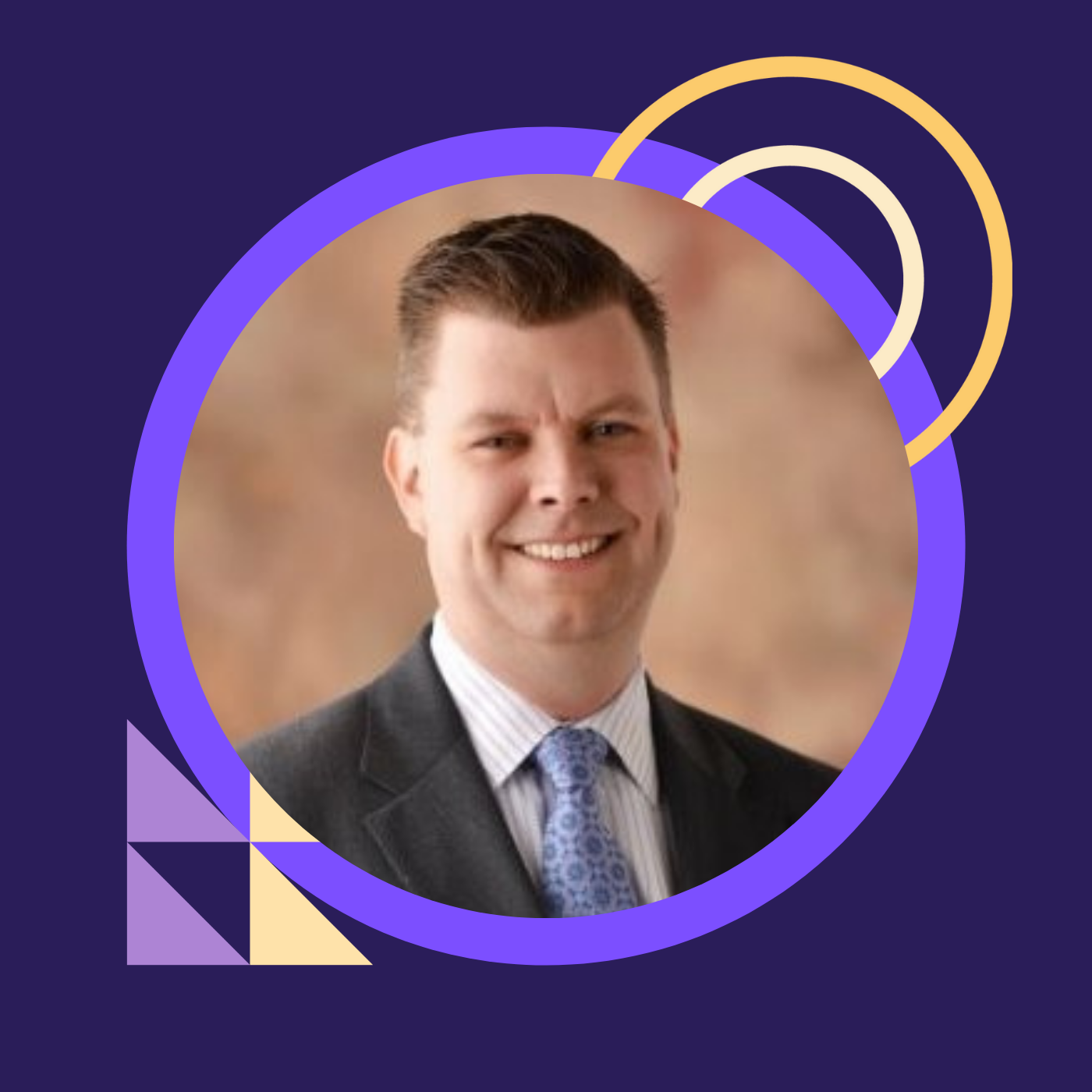Opening CEO Keynote | Grant Halloran
- 0.5
- 1
- 1.25
- 1.5
- 1.75
- 2
Announcer: Please welcome to the stage, Planful's Chief Executive Officer, Grant Halloran.
Grant Halloran: Good morning. Good morning. Who's an ACDC fan? Come on. inaudible. Well, welcome to Perform 22. It's so exciting to be here. Who's happy to be in Vegas? I certainly am. I hope you've had your coffee or your bloody Mary's, whatever is called for this morning, but it's so great, isn't it? To be together. And that's our theme for Perform 22 is better together. It's not just about a marketing slogan. It's not just about us being here together. We're going to unpack some stuff this next few days about how we can be better together in finance, accounting, and supporting our business partners inside our organizations. So this is the first event that we have put on in person like this, traditional kind of in person event since 2019 and coincidentally, it was here at the Aria. So three years now. So it's awesome to be back. And a lot has changed. There's a lot of new faces here at Planful. We've been going through a lot of change in improvement as a company in the last three years, including me. I joined the company coming on three years. July one is my three year anniversary here. So we felt like it might be a good time just because we're in person to introduce myself. I've had a chance to talk to you, many of you via laptop screens and phone calls and whatnot, but we're here in person. So a little bit about me. I think the marketing team put a photo of me up here to talk over. Where is it? Oh, really? Seriously? Oh man. Okay. Yeah. Good one. Practical joke at the start of a keynote. Thanks guys. I really appreciate that. All right. The next one must be the right one. That's not a knife. Oh, okay. That's not me either. Okay. Third one third. Third time lucky here. Oh. Mad Max. I am crazy, but I'm not as mad as Mad Max, but no, I think here it is. I am a Azzie, as you can tell, I'm not a star like these guys, but I like to think my kids that you can see here with my wife and me, think that I'm a star, at least I tell myself that. Here we are higher top Sydney Harbor bridge. Yes. I'm from Sydney originally. Don't panic. I do live here in the US and have done so for about 11 years now, but here we are climbing, I think that's pretty close to the top. That's where they take the photo. Amazing photo, right? That was quite an experience. And let's just emphasize experience because while the view is amazing and we all look happy there, I was absolutely terrified. I was mortified. I have a fear of heights and my kids were ahead of me. So I don't think they, they saw it, but the guide definitely did. He's like, I've seen this face a thousand times. But we got the photo at the top. It was a great experience. The things we do for our kids, you know? We put ourselves in mortal danger like this for our children. Don't we? So anyway, that was a very fun experience. But in all seriousness, like I said, I've been here at Planful for three years now and it's been an incredible experience so far. A little bit about my professional background, just so you can understand why I'm so passionate about what we do here is I started my career in banking. And then I went into the software industry in my late twenties, been an entrepreneur for quite a while, too many years, I'm not going to date myself, but it's just say it's been a while, but I actually don't tell, it's a secret, okay. I don't want this out in public, but I am a trained accountant. And I actually worked in finance in the bank for a while. So I have a lot of empathy. I have a lot of compassion for some of the pain you guys have to experience every day, but also the joys of what you go through as well. I came into the category, financial performance management, about seven years ago. And it really is an honor to lead the amazing team at Planful. And we're on a mission, we're on a real mission. And there's a lot of folks like me that have experienced some of the things you have to go through every day. And we really feel mission focused here and purposeful about what we're doing. It's all about supporting you, trying to get you to the place you want to go to. So three years ago we started a fairly big, that T word, transformation. We did a lot of things in the organization. We wanted to take what we thought was a really, really excellent company, we just wanted to make it great for the long term. So we did a whole bunch of things, too much to mention here, but a couple things, we've globally expanded, we've increased our partner ecosystem quite dramatically. The most evident change was rebranding from Host Analytics to Planful. We rebranded, we did a big launch. It was really cool. And then this thing came along. I'm not even going to mention the word, the P word. Okay. And what a black swan event that was, crazy. And it's completely upended our lives professionally and personally, in many, many ways. I'm not going to drag us through all of that again. But the funny thing was that our name change was eerily well timed. It happened just a few months before that began because Planful is a real word, in case you didn't know that. It is a real word, you can look it up online. It means to be systematic, to be methodical, and to be forward looking. And we chose that name because we wanted a name that reflects the character and nature of our customers. You are all Planful. You are forward looking, systematic, and methodical people. And we thought, wow, if we're going to put customers as our number one core value, why not have a name that actually reflects the character of our customers? So we're really proud of that. Who's been, over the last few years, like who feels like you've just been in constant planning and replanning and forecasting and re forecasting, and course correcting, who feels like they've just been crazy the last few years? You all have, because this has been really a time where I think every industry has been affected at the same magnitude, right? Normally a lot of economic changes and societal changes happen and they, they get isolated into different countries or whatever, all throughout the world we've been going through this. So it's true of all organizations. And we serve companies in all industries. And that's the common thread that cuts through all of the experiences that you're having. Course correcting your organization more easily and rapidly has never been more important because the impact of these external forces has never been higher. Now we're facing even potentially other significant macro events throughout the world. You know, I feel, and I'm sure many of you agree, wouldn't it be just lovely, wouldn't it be wonderful to have just a period, just give us a period of time where we just have some stability. Wouldn't that feel nice? Unfortunately, I'm here to tell you that is forever elusive. We are forever in this hyperdynamic world and the pace of change is just getting faster and faster. So I think the key questions that we have to ask ourselves are these, are we prepared? Have we created resiliency in our systems? In our processes? Are we leveraging data and insights and empowering our organization, right? Being an enabler for our organization to use that data and insight to drive course correcting decisions? And are we operating at the frontier of maximum efficiency or at least being on that pathway? Those are some of the key questions that we have to ask ourselves. And we ask ourselves as an organization with the products and services we deliver to you. And it's not just us at Planful. That see this as important. In 2020 McKinsey did a study and they found that 75% of leaders see organizational agility as a top priority. I'm not sure what the other 25% are doing, but... McKinsey also found this, I think is really stunning, between 2016 and 2021, the number of finance leaders that are responsible for digital transformation, digital activities in their organization has tripled. And you might say, well, that's a good stat. Maybe it was 1% to 3%, no, it's 9% to 31%. So nearly one third of CFOs in'21 said that they are now in charge of that. That's only in five years. So this is a pretty incredible trend. I don't think it's going to stop. And then while we, at the same time where we have all of these exogenous factors that are driving all this change for us and uncertainty for us, we all have our own internal factors that we have to deal with, right? That new product launch that didn't go to plan, that new sales channel that we opened up is not going to plan. We have all of these factors that are going on in our lives. And at the same time, EY found that last year, 85%, basically every CFO said, we see increasing regulatory complexity and scrutiny into the future. So we're making it even harder and harder to operate our organizations. Some regulation is great, but the reality is we're constantly having to change. However, there is a silver lining here. We believe that these trends are ushering in what we like to call the golden age of CFO tech. In a past life, I worked in the marketing technology space and who remembers, there was something profound happened in 2007. At the time, you may not have thought it was profound, but who can remember? Something happened in 2007, who wants to have a guess at what I'm about to say? It was January, 2007. There was a guy, black sort of, what do you call him skinny or a turtle neck with pair of ripped jeans on a stage in California. And he unveiled this thing called the iPhone, right? At the same time, wifi was being rolled out ubiquitously throughout most of the Western world. Social media was rising up. We just went through 15 years of the most dramatic change to society we've ever seen. Today we have huge debates about whether it's good for us. The entire economy has changed. Society has changed. We now live in this always on constantly connected world. In previous generations, this seismic change might happen over 50, 75, 100 years. This happened 2007 to 2022, right? All of you will walk out of this room and can search up anything you want in the world right now. So this is just profound pace of change, right? It wasn't because Apple brought out an iPhone and then the others followed. All of these forces had to come together. They had to converge to enable this to happen. And we think that ushered in a golden age for marketing technology, trillions of dollars have been spent reengineering the way we engage with customers because we need to respond to diminishing brand loyalties, all of these changes have happened seemingly overnight, and it's happening to us right now. The last two, three years, mark my words, are the beginning of that golden age for modernization, for CFO technology. And it's not just me that believes it. These numbers will back that up a little bit. William Blair, investment banker out of Chicago, estimates that$ 15 billion will be spent this year in finance and accounting software, including the space that we're in, financial performance management. We're happy to take a little share of that. We also calculated ourselves just looking up public information, knowing our space, that 12 billion has been invested in the last three years into the space that Planful is a leader in. 12 billion dollars of capital has been invested in that last three years. Why is that? Investors see what we're talking about here today. They see these massive changes. They see that finance and accounting teams want to modernize and in some ways are being forced to modernize. They're being forced to respond to these changes. So being tech savvy, being data driven, making financially smart decisions as many times as you can, throughout all the cycles that you operate in, these are the new expectations for finance and accounting professionals. I bet that many of you that are hiring folks that are earlier in their journey, in their career journey, when you're hiring them, I bet you're looking for tech savvy people, right? I'm seeing a lot of nods. That's the new way we need to operate here. And we're seeing some examples. I want to just shout out a few companies that we think are doing tremendous things already there. They may be a little further along the journey here. Firstly LT Apparel, so LT Apparel design and distribute all the kids' clothing for Adidas and well, you might say a Adidas, I say Adidas, and Carhartt. I got to get my kids some Carhartt clothes, obviously. Lee Johnson talks here about course correction, continuous planning, and being able to plan more confidently than ever before. He's talking about not just building an annual budget, he's talking about re forecasting, re budgeting as many times as needed throughout the year. Vail Resorts, many of you ski and enjoy Vail Resorts. They have dozens and dozens of properties throughout the world. I was talking with Jason last night from Vail, said that I think they had just recently acquired four or five other properties throughout the world. Very complex organization. They're using Planful with reams and reams of operational data to drive weekly and even daily decisions around trade promotions to drive more revenue impact, and then of course the trickle down effect of that on workforce. How many folks do we need at the ski school? How many folks do we need at the chair lifts? Those sorts of things. That is really a fantastic example of connecting operational and financial data together to drive incredible outcomes for their company. Workforce planning is a huge aspect of most organizations, right? I think for many of you, your headcount cost is maybe the biggest category of cost that you have. So it's very important to be doing workforce planning, the most granular level you can. We're proud that we enable that to happen. So here's Specialized that is able to link their efforts in workforce planning to actually scaling their business globally. It's phenomenal. It's amazing. I remember was talking to Specialized at the beginning of the pandemic and they were like, we have no idea what's going to happen now. Fortunately, the sales of bikes skyrocketed, as we all decided that was going to be a cool way to exercise into the future. So well done to them. I have a few Specialized bikes. I ski at Vail Resorts. I have Adidas kids' clothes. I got to get some Carhartt. So we're working on that. Okay. So what about us? What are some of the things that we feel differentiate Planful? And you're going to hear me say this today, and I think many of our people say we're not perfect, but we do have a point of view. We do have a approach that we like to take. And many of you are really experienced business people. You know, there's not one factor that makes you different. It's a combination of these factors. So let's look at some of those. The first is that we talk about this best of both worlds. So you'll see on this slide here, you've got a beautiful looking report, which is being generated in the web via fire Planful. Okay. But many of you, like me, grew up with Excel. I love Excel. It's a cool tool. It's not a system of truth. It's not a great system of collaboration, but it's a cool tool. It's got a lot of functionality. We like to take that functionality and bring it to bear for those that want to use our system that way through our spotlight interface, which many of our customers love. So you can see in the top part there, that's Excel. We use the Excel syntax inside our system as well to make it easy for people to onboard and adopt our technology. This is a really powerful way in which we are able to differentiate from some of the other offerings in our market. Our customers love that fact. Native AI. You're going to hear a lot about this. Please do not be scared of AI. I'm not talking about generalized AI with those robots from Boston Robotics, we're not getting into that. Okay. We want to make the world a better place for all of you in your daily lives. And so what we built over the last few years is our own proprietary engine, we call Predict. It is an AI engine. Tomorrow you'll hear more about the differences in AI machine learning, those sorts of things. It's an AI engine and it operates in situ, right there, native, inside the Planful platform. And why that's cool for you is it keeps your data secure. You're not having to go out and subscribe to third party systems and ship all this data. And obviously the more data the better. So it's a lot of data. You don't have to ship it across to another system, generate some insights and bring it back. It all is operating right there, in situ, in Planful. So it keeps it secure, makes it faster. And you know, when we started out on this journey, one of the things I remember, a conversation we were having when we were envisioning this and we said, look, guys, a lot of people are scared of this stuff and I think finance, accounting people tend to be a little more conservative, they're going to be worried about this. We have to make it just work. We don't need them to understand data science. We don't want them to have to hire a data scientist. What they want is they just want utility. They want value straight away and they want that to be evident immediately to them. And that's what we built. However, you don't have to just rely upon some computer to tell you numbers and find things for you. We keep the human in the loop. That's really important. You're going to hear a lot more about that. You're going to hear more from me about collaboration, but I will just say we have a point of view that collaboration needs to be at the core of our platform. We've made great strides there, but there is a lot of really cool stuff to come around collaboration. And it's all about eliminating the friction of how you run these processes throughout your organization. I mean, only a fool thinks that finance is a game that's played by finance people. If you think about all the processes that you're running, that just permeate every part of your business. Okay? So we need to focus on eliminating the collaborative friction that is involved through our system and many other systems in this space, we're on a mission to eliminate that. This is something that we hear all the time, literally, every company or organization that comes to us and says, hey, we've got these pains, these challenges. And we ask them what's important to them about the partner they choose. Always they say, we need this to be finance owned. We don't have big IT budgets, we don't have big IT teams. And the limited it resources that we do have, they're off doing other things, right? So they want it to be owned by finance. Of course, they want our experts and our partner ecosystem with all that domain expertise to come in and help them stand it up and implement the best practices. And they want our experts, the Navy Seals that we have that come in and help with some of the really, really tough stuff. They want us to help do that. But once it's up and running, they want to be able to administer and manage that system themselves. And folks, I got to tell you, that's not easy to do. There's a lot of really hard things to do in software. And this is one of them just to make software really powerful, but enable business people with a little bit of training to administer the system themselves. It really is tough to do. And we're proud of the fact that we're on that journey and we're doing it today. Now, finally, I want to emphasize security. I'm not sure if I took a poll and said what are these five things that I want to put up there as key differentiators. I'm not sure many would've selected security. I want to put it up here because there's a point I want to make. You know, I've been in the cloud software industry too many years and probably 20 years ago, we used to talk about security a lot more. And I don't think we talk about it enough anymore. All of these icons and logos up here that you see are the byproduct of millions and millions of dollars of investment, dozens and dozens of people inside our organization spread throughout the world that sole purpose is to secure your precious, sensitive financial information. The message I'd like to send to you is don't take this for granted. Don't just say, oh, well, everyone's got that. I can't believe that in 2022, I will be standing on a stage and telling you that not everyone has this, not everyone actually cares about the financial data and securing that and investing in the millions of dollars to be able to do this. This says, we have experts outside our organization that scrutinize the heck out of us to make sure that we don't have vulnerabilities that are going to put at threat your confidential information, because there are millions and millions of attacks that are happening. And I'm really unhappy about the fact that one of our competitors doesn't even have this and many of them don't and some of them have even been lying about it, telling people that they have this stuff, and I'm not here to downgrade them, but I'm here to say it just a reminder, like it actually angers me. It actually angers me because there are organizations out there that say, hey, you know what? We have all this. And they don't. They're not on the same mission that we are on for you. So security is super important. I think you can feel my passion around this. And you're going to hear more from Hersh. Now. Hersh Mahavini is our tech ops and trust leader at Planful. He's going to talk more about this tomorrow and just help you understand what we have to invest in. The message for you is whether it's with us or anyone else, please always make sure your security evaluation teams are really scrutinizing what those organizations are doing. Don't take it for granted, okay? Hersh, man, this guy, he likes to spend a lot of money and we never deny, we never deny it for all these reasons. So wrapping it all together, that's five things. There's lots of things we'd like to do. That's more platform stuff, right? What's really important though, is to put a big blanket over this, a big warm blanket called customer service. And you know, every software vendor is going to tell you, we have great service. We have 24- 7, this and 24-7 that and 365 that and this and whatever. We all have all these things right, now, we do. I think we have best in class, online training and in person training, we hear lots of good feedback around that. We have great customer support teams. We have all the things that you need. Follow the sun, support, all that stuff. Some of you sit in the room saying, oh, well, sometimes it could be better. Of course. We're always trying to get better at that. The real difference though, and I hear this in conversation with people, the real difference is the passion of the people. This is a people business. This is not business to business. This is people to people and customer service, the transcendent customer service comes from empathy, and it comes from people in our organization that really understand you. Us reform finance and accounting people that chose to build technologies and provide service to help folks just like us. That empathy is what makes that little difference. And we hear that all the time. So I'm really proud of the teams that we have that provide the customer service. And I really wanted to emphasize that today, because it's not just about product. So we are working hard. We ask a lot of our teams on behalf of all of you, our customers, and many of our customers say, well, how's the business going? What are the results that you're getting? And so I thought I'd take a minute here just to highlight some of the things our business is going incredibly well because of you, because of the hard work that our team's putting in and the task that you hold us to and the high bar that our customers hold us to. That gets results. 2021 was the best year in the history of Planful slash host. Now new customer acquisitions last year more than doubled from the year before and was actually a massive jump from any other year prior as well. Our subscription bookings growth was up 65%. Year over year, we expanded internationally opening offices in London, Sydney, and Toronto who's opening offices right now? We are. We want our teams, those little nucleus of teams together to come together and actually have an office to work in. Not five days a week, it's okay. No panic of the employees in the room. It's all fine. We increase the velocity of our product advancements by moving to a monthly release cycle. That sounds a little trivial, we moved from quarterly to monthly. It was actually incredibly hard to do. And I want to thank all the customers that were involved in that process of helping us figure out how to do this in a way that enables you to have more innovation and fixes and everything else on a monthly cycle without overwhelming you. So we've figured out how to do that, and we're very proud that we're now in that cycle. And we achieved, I mentioned the CSAT score, not perfect, 92%. My team tells me this is a really good number, 92%. Okay. My response to them is, but you can do better. So we are going to do better at that. Hold me to that. Now, of course, we're getting great recognition and folks, this is not to gloat. Trust me. This is really more about us understanding, are we on the right track? We see these awards and recognitions as more signposts that help us understand whether we're we're on the right track. And we look at the feedback and the specific reviews that we get, and we really do take them very seriously. We prefer it if you say good things for us publicly, but no, I'm just kidding. Just tell us the truth. We want intellectual honesty from our customers and you'll get it back from us. And that's what we need to keep growing and getting better as a company. So this is just about saying, hey, are we on the right track? Yes, we are. And we're growing in other ways as well. I mentioned at the beginning, our partner ecosystem, we've expanded that community, we've tripled the size of it globally. Really the momentum we have of organizations coming to us and saying, hey, we want to build a Planful practice is pretty unbelievable. So tripled the size of that. 400% increase in our subscription bookings growth from that channel. And we signed three new partnerships last year, strategic partnerships with Acumatica and Microsoft and Trintech. And many of our SI and resale partners are also partners with these organizations. So you're going to see actually some presentations this week where there's some really cool stuff going on between our product and these, these products as well. So keep an eye out for those. Speaking of partners, I just do want to take a minute to thank sponsors for this event. These events do not happen without the support of sponsors. Our gold sponsor Bakerfield Solutions, silver sponsors, UHY Consulting, CFO Solutions, Kegenix Consulting, Keen Vision, Embark, and Techcloudpro. And our bronze sponsors Topdown, CPM, Foremost Consulting and Flowcast. Thank you everyone. And then a special thank you to Trintech, our platinum sponsor this year at Perform 22. We created a strategic partnership with Trintech last year on the close side account reconciliations, bank reconciliations, matching, automation of all of that. It's super important. I want you to see the presentations this week because we think finance and accounting processes need to be integrated because it's a real end to end process. If we can close the books faster with the help of the Trintech technology, well integrated with Planful that enables you to get those insights back out to management and then keep course correcting your business faster and faster. Okay. So take a look at those presentations this week. So guys, would you just take a minute to join me in thanking Trintech and all of our other partners for helping us out of this event? You know, we set a really high bar for our partner program and a number of them, these sponsors are in the expo hall, please, when you get a second go and have a chat with them. They have industry expertise, domain knowledge that we could never have. And that's the power of that combination. So make sure you go off, go and have a chat with the folks out there and ask them, Hey, why are you different? What makes you special? And they'll give you great answers. Okay. So let's bring it home. The clock here stop means I've got to hurry up. Okay. So let's bring it home. You may be wondering where what's next? Where are we going now? There's a lot that we're doing, over 20% of our R& D budget is just dedicated to fixing the little things that the bug bears, the things that customers just want done. There's little features here and there. We got to keep doing that. But there are three big areas I want to highlight. I've touched on them a little bit and I just want to dive in a little bit more here and unpack them. The first is performance. You know, as I said, it's more and more data. I used the example of Vail Resorts, just tons and tons of we're talking about hundreds of gigabytes a month and a quarter that are coming into the system. That may not sound like a large amount, but when you're talking about the types of data we're talking about, this is huge, right? So we have to keep improving our performance. I know many of you want us to keep doing that and we are, but I wanted to just highlight a couple of really interesting stats here. The amount of data that we manage in our cloud tech operations in 2019, compared to'22 has quadrupled. So in three years, we've quadrupled the amount of data and that's because customers are saying, Hey, and we want to load 10 years of data into this system. We want all this reams of operational data going in, so on and so forth, and that's the result of that. Back in'19, we would say our performance was kind of like on pace with the, with data. Okay? But in that time, we've increased performance six times. And what I'm talking about in performance is a blended average across all your common processes, data loads, queue processing times, the dynamic models that you build in dynamic planning, the aggregations of all of that, the hardware investments that we've been making and continue to make. So it's all software and hardware has to come together to make this cloud software increasingly performant. And that's something that we're really proud of those achievements. And there will be more again in the product session tomorrow you'll hear more and more about that and how we've done this and where we are taking it. Native AI. I mentioned, there's a lot of emphasis on this here. Why do we do it? Let's take a step back for a second here and say, what's the big deal about AI? Well, who knows this guy, Steve Player, Future Ready Finance. And he's been helping finance accounting people for many, many years, and recently he was interviewed by Rowan, our CMO, on the Being Planful podcast. And something Steve said really jumped out for me. He said, I'm going to try the Texan accent. It's not going to be good, but we got to stop doing the dumb stuff. That was terrible. I'm sorry. I apologize to all the Texans in the room. We'll have a competition later. You can do an Aussie accent and I'll try to do yours, but yeah, it's, we're going to stop doing the dumb stuff. We think it's dumb work. But what Steve's getting at here is something we would call like low value menial kind of work, right. You know, you're flying by the seat of your pants, trying to figure out whether there's an era in all of this data, it's just not a good way to live your professional life. And so we want to get rid of that because we know that you didn't go to college, get a degree in finance or accounting so you could do all that menial, dumb stuff. You want to add value to a business. You want it to be there in the room, right? Who's seen Hamilton? Who wants to be in the room? You got to be in the room when it happens. Right? And that's what finance and accounting people are now able to do because they're being seen as these champions, these heroes of people that can actually enable the business. So we need to maximize that time for you. We need to give you the opportunity to enrich your careers by doing high value work. And certainly I think it was somebody nodding before about hiring new folks, right? We're in this global war for talent. I was talking with one of my board members last night and we were talking about competition. And I said, you know, it's interesting. I don't see, now when I think about competition, I don't think about direct competition. I think everyone in the software industry is competition for us. Why is that? Because if you think that it's talent that drives success in your business, you are in a war with everyone for that talent. Would you agree? It's so hard to hire people. It's so hard to retain people in this market. So our competition, isn't just the direct folks that are trying to do what we do. It's everyone. And what we need to do is, and these folks that are coming through out of college, we need to give them the best tools, we need to get them on the right path early on. Let's not put them through the baptism of fire of making them work till 3: 00 AM for months on end, right. And say, well, I had to go through that so now you're going to have to go through that because you know what, they won't be here in a few months. They want the best technologies and they're coming from that always on world. So this is really important. So Predict, bringing it back to why we do this stuff, it's enabling them to focus on more of that high value work. The first application we built on the Predict engine is Signals. So many of you have recently signed up for that. It's incredibly amazing technology. And what I'd like you to think of is it really just gives you a like a million extra eyes that are looking at your data. It never sleeps. It's constantly looking through all of the data you have in that system, it's comparing it to other things. It's looking at trends and it's spotting all these anomalies, these errors that, hey, it just persists, right? There's so many errors that get generated through these processes and it's surfacing them for action and Predict is getting better, the Predict engine, as we continue to build out these applications. So I'm really happy to announce the general availability of our second application built on Predict and it's called Projections. Projections enables you to create intelligent forecasts far quicker than any human process can do today. It enables you to take that disconnected financial and operational data and turn it into curated AI insights immediately. Now, importantly, I mentioned human in the loop. We're a software company, we have to create acronyms. We call it HITL, human in the loop, right? You, when you use projections, you are able to accept, reject, or modify all the values and track all of that inside the system. I think the combination, when you see signals and projections working together and in the future, the other applications we're building with Predict, you're going to be blown away. It really is the next generation of functionality that enables you to eliminate this dumb work and really finally start to get time back in your day, either to use, to go to your little league game for your kids or that play that you missed last year or the graduations that many of you are going to have this week in the next few weeks. Certainly I do with kids. It gives you that time back, but it also enables you and your day to day to actually spend that time that you need on the high value work. Now I'm talking about you guys, humans, right? And so that brings me to collaboration. You know, unfortunately I think software, enterprise software has sucked for a long time. I've been in this space for a few years and it hasn't been great. The experiences that have been built. And I think our space has been plagued by it as well. And I'm not saying that we are completely innocent of that either because when this whole category was born and rose up by design, a lot of the technology was built for finance people. It was coming from a paradigm that said, Hey, we're going to train all these finance folks. We're going to give them all these powerful tools and they're going to learn it and they're going to drive it. But unfortunately, what that means is that it's not such an intuitive process for all the business users, the less finance savvy folks in your organization. And as we talked about earlier, all these processes are permeated throughout the whole company, right? It's not just finance doing its thing. And then having conversations. We're trying to get this data to flow throughout the whole organization. Many of you want finance to be a team sport. Okay. So we've got to be able to create much better and foster much better collaboration between finance and business users, right inside Planful. And to do that, you have to create a zero training experience. This is something Andrew, our chief product officer, talked about several times in some of our virtual meetings, zero training. And that's our north star for the experience that we create for business users. It has to be so intuitive they can just click into the system, do what they need to do, and you don't have to worry about whether they were trained or not. That's our goal. And if we don't achieve it, you got to tell us, Hey, this person couldn't do that. So we'll quickly iterate because every month we're going to keep improving this. So tomorrow in the product keynote, come along to that to watch that because you're going to see that new business experience unveiled. And it's only the beginning. We've only just started with that. And it's going to be incredible over the next months and years to see what we are going to bring out for you. Okay. So what we've unveiled really is all about this mission to enable you to be high value partner to your organization. And that means we've got to get rid of the technological friction and the organizational friction in the business. That's ultimately what it's about. We think we've built the right foundation for 2022 that we can build on so that this technology is permeating your business and adding value to you in 2032. And that's all we can do. We want to empower you to be a champion of finance. Okay? And you know what? In sport, we talk about team sport, there are champions. The reality is that in the business world, not everyone gets a trophy. There are champions, there are winners and losers, and we think you are the champions. Because if you look at the stuff you had to do in the last few years, you were the first responders, you were the first boots on the ground. You were the heroes when the board and the CEO and the CFO was saying, what the heck is happening? What is this going to do to our cash flow? What's this going to do with our supply lines? What's this going to do to our sales, which stores throughout the country are going to be affected, which channel... all these questions are coming at you like a fire hose and you guys had to be there. The first responders on the ground, working countless hours to be able to give those answers to people. One of the proudest moments I've had in my career was when a customer said to me, if we didn't have Planful to do that, I honestly don't think I could have even answered the questions that they wanted, let alone get them there in a timely manner. So you guys are champions and we want to keep making that work for you. So folks, it's going to be incredible few days ahead. You're going to hear from a lot of experts. When I get off the stage, a bunch of smart people are going to come on and they're going to give you a lot of industry leadership, thought leadership, a customer panel that Kimberley's going to run is going to be incredible. And then after Kimberley's session, we're going to have a little break and then do not miss Barbara Cochran. Now, I had the privilege of sitting in an audience and watching Barbara speak about a month or so ago at another conference. Trust me, make sure you get back in your seats for this because she is a riot. She is awesome. And she is graciously agreed to do a Q&A at the end of her talk. So in the app, the Planful Perform app that you hopefully you have on your phone by now, there is a place there that you can type in questions to ask Barbara, and she's going to answer them right on here. And trust me when Barbara goes off script, you do not want to miss it. It's going to be awesome. So our final thanks again to our partners, our board members that are all here. Thank you folks. The great folks at Vector Capital, our majority owner, been incredibly supportive of my management team and I, so supportive of our mission and our growth as a company. It's incredible. And of course I'm really, really proud of the amazing Planful team, all of our employees throughout the world. It really is an honor to support them and serve them. And here's just a few photos of them. We like to celebrate and have a good time because we ask a lot of them. We ask them to work really, really hard. So we also like to celebrate their efforts and the results that we get for all of you. And last, and certainly not least thank you for being here. Thank you to all of our customers, for being such incredible people to work with. And our soon- to be customers that are here, thank you for coming and learning about what we can do for you. So thank you all again. Enjoy the next few days. We'll have some good fun tomorrow night after all the intelligent stuff happens. So thank you very, very much for coming and have a great conference here. Thank you.
DESCRIPTION
We’ve all been working through drastic increases in the pace of change, competitors’ aggressiveness, frequency of disruption, and unstoppable data overload. It all combines to create organizational and technological friction. Yet finance and accounting leaders are still pushed to be strategic advisors to the business. That’s a big ask when you’re stuck in manual processes, slowed by remote teams, and unable to connect today’s insights with future goals. It’s clear that the way you’re used to operating—slow close and consolidation cycles, reports that lack meaningful insights, unreliable plans and forecasts—is no longer an option.
Join Grant Halloran, CEO of Planful, as he sets the tone for Perform 2022 and discusses how the Office of the CFO can thrive in what is truly becoming the Golden Age of the CFO.
Today's Guests
